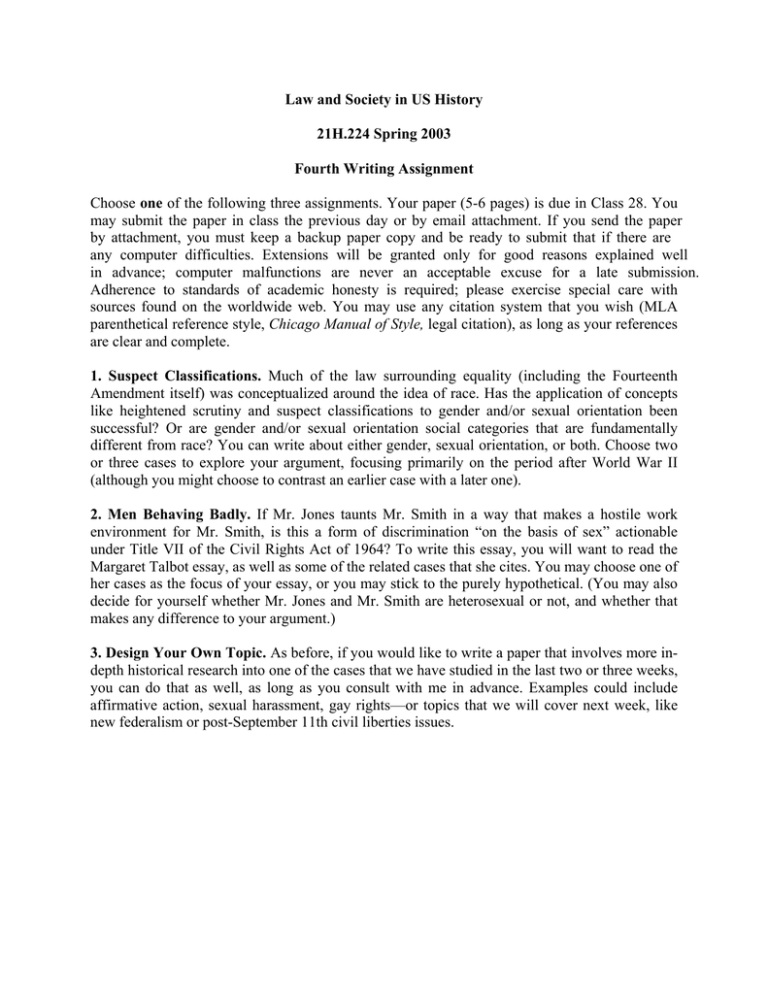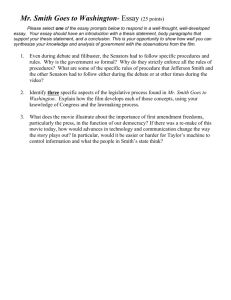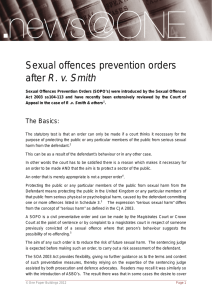
Law and Society in US History
21H.224 Spring 2003
Fourth Writing Assignment
Choose one of the following three assignments. Your paper (5-6 pages) is due in Class 28. You
may submit the paper in class the previous day or by email attachment. If you send the paper
by attachment, you must keep a backup paper copy and be ready to submit that if there are
any computer difficulties. Extensions will be granted only for good reasons explained well
in advance; computer malfunctions are never an acceptable excuse for a late submission.
Adherence to standards of academic honesty is required; please exercise special care with
sources found on the worldwide web. You may use any citation system that you wish (MLA
parenthetical reference style, Chicago Manual of Style, legal citation), as long as your references
are clear and complete.
1. Suspect Classifications. Much of the law surrounding equality (including the Fourteenth
Amendment itself) was conceptualized around the idea of race. Has the application of concepts
like heightened scrutiny and suspect classifications to gender and/or sexual orientation been
successful? Or are gender and/or sexual orientation social categories that are fundamentally
different from race? You can write about either gender, sexual orientation, or both. Choose two
or three cases to explore your argument, focusing primarily on the period after World War II
(although you might choose to contrast an earlier case with a later one).
2. Men Behaving Badly. If Mr. Jones taunts Mr. Smith in a way that makes a hostile work
environment for Mr. Smith, is this a form of discrimination “on the basis of sex” actionable
under Title VII of the Civil Rights Act of 1964? To write this essay, you will want to read the
Margaret Talbot essay, as well as some of the related cases that she cites. You may choose one of
her cases as the focus of your essay, or you may stick to the purely hypothetical. (You may also
decide for yourself whether Mr. Jones and Mr. Smith are heterosexual or not, and whether that
makes any difference to your argument.)
3. Design Your Own Topic. As before, if you would like to write a paper that involves more indepth historical research into one of the cases that we have studied in the last two or three weeks,
you can do that as well, as long as you consult with me in advance. Examples could include
affirmative action, sexual harassment, gay rights—or topics that we will cover next week, like
new federalism or post-September 11th civil liberties issues.




